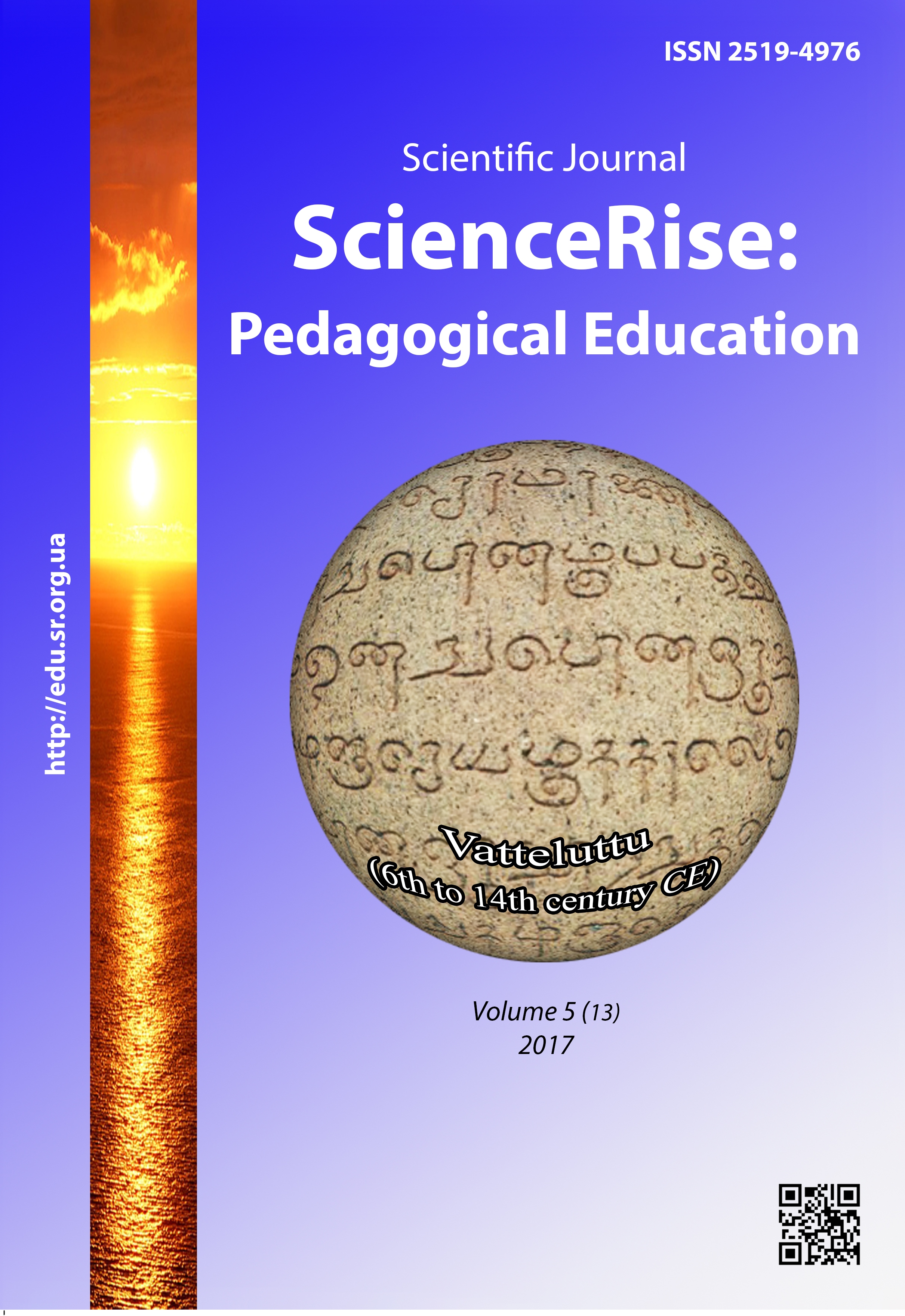Content and specificity of research activity of future teacher of philology: results of the experimental training
DOI:
https://doi.org/10.15587/2519-4984.2017.102440Keywords:
psychological and pedagogical mechanisms of influence, productive research activity, training, future teacher of philologyAbstract
The article is intended to identify psychological and pedagogical mechanisms of influence on productive research activity of the future teacher of philology in the context of personal approach. The priority and importance of research in the training of future teachers is emphasized.
Proven to be one of the possible ways to radically change the situation in this area is a reorientation of the educational strategy of the higher school, its educational process on the radical changes in the training of teachers, where an important role is played by reorientation of the traditional system of organization of research work of students of pedagogical universities, its direction (organization) on the modification of existing professional values.
It is accented by the fact that only dynamic change of yourself, your thinking makes possible self-formation and acquisition of the dynamic future teacher competence, providing professional success, innovation, forecasting changes and their originality, forms the mood for searching for the achievements and upholding truth, that is strong ethical sources that make up the moral foundations of the teaching profession
References
- Andrushchenko, V. (2011). Strategic Iinitiatives. Higher education of Ukraine, 4, 5–7.
- Drach, I. I. (2005). Evaluation of creative potential of university students. Problems of education, 41, 153–160.
- Zyazyun, I. A. (Ed.) (2011). Teaching skills in system of vocational and artistic competence. IX International pedagogical materials and artistic readings memory of Professor O. P. Rudnytska. Chernovtsy: Zelena Bukovina, 3 (7), 640.
- Mykytyuk, O. M. (2001). Formation and development of research in higher educational institutions of Ukraine (historical and pedagogical aspect). Kharkiv: OBC, 256.
- Nabokа, O. G. (2010). Research activity of students as professionally oriented technology. Science and Education, 7, 165–168.
- Sushchenko, L. A. (2012). Analysis of the scientific contribution of modern researchers to solve problems of organization of research work for future teachers in vocational training. Pedagogical Sciences: theory, history, innovative technologies, 8, 329–337.
- Sheyko, V. M., Kushnarenko, N. M. (2002). The organization and methods of research activities. Kyiv: Znannya-Press, 295.
- Frolov, M. O. (2004). Research work at the Institute of Postgraduate Education. Postgraduate education in Ukraine, 1, 87–92.
- Uysimbayeva, N. (2010). Scientific research activity of future specialist. Scientific notes, 88, 243–246.
- Furman, A. (2010). Pedagogy as mental activity sphere: sector, function, object, method. Education and Management, 1, 30–44.
Downloads
Published
How to Cite
Issue
Section
License
Copyright (c) 2017 Olena Artemenko

This work is licensed under a Creative Commons Attribution 4.0 International License.
Our journal abides by the Creative Commons CC BY copyright rights and permissions for open access journals.
Authors, who are published in this journal, agree to the following conditions:
1. The authors reserve the right to authorship of the work and pass the first publication right of this work to the journal under the terms of a Creative Commons CC BY, which allows others to freely distribute the published research with the obligatory reference to the authors of the original work and the first publication of the work in this journal.
2. The authors have the right to conclude separate supplement agreements that relate to non-exclusive work distribution in the form in which it has been published by the journal (for example, to upload the work to the online storage of the journal or publish it as part of a monograph), provided that the reference to the first publication of the work in this journal is included.








